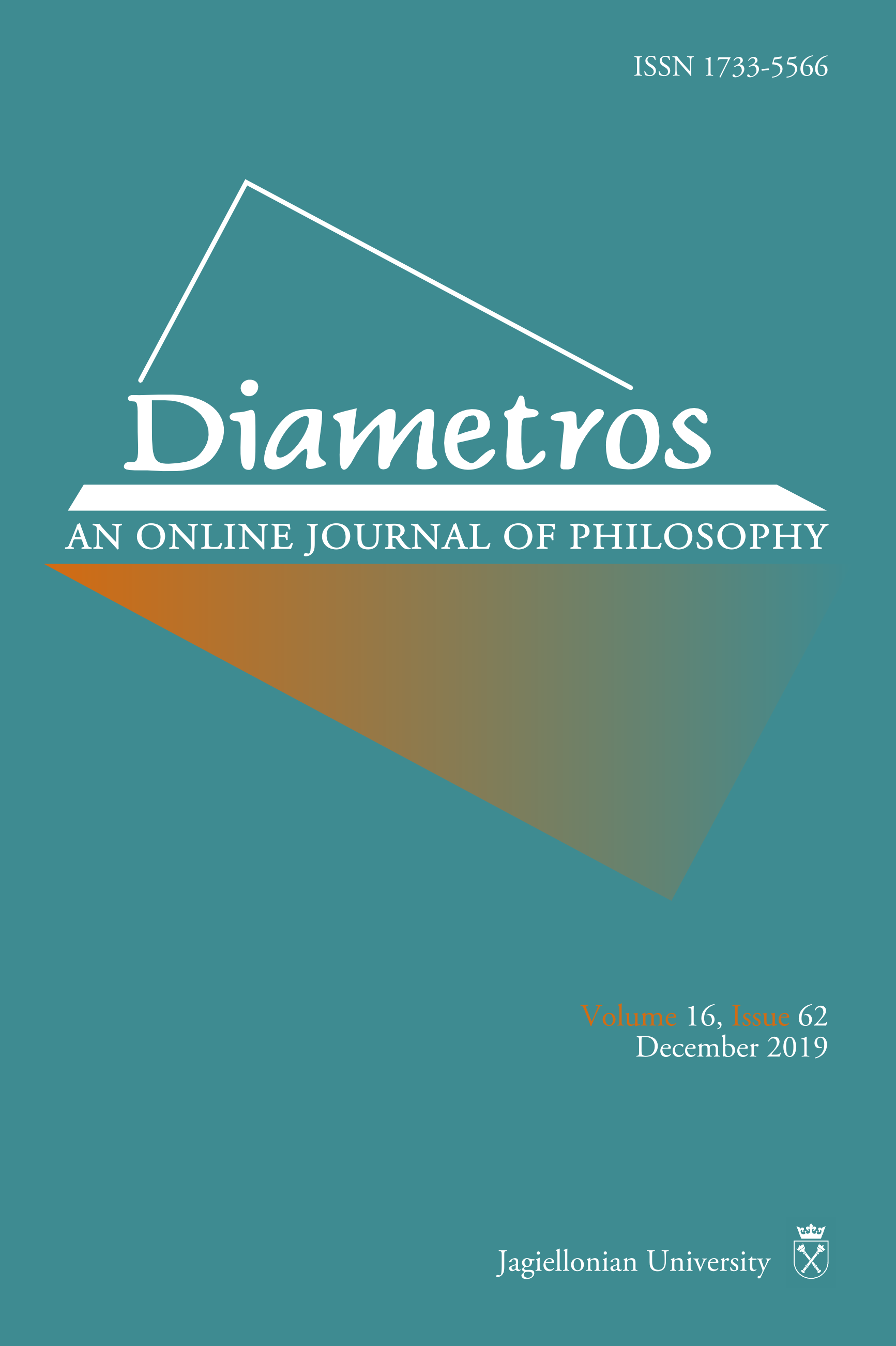Defeating Ignorance – Ius ad Bellum Heuristics for Modern Professional Soldiers
Main Article Content
Abstrakt
Just War Theory debates discussing the principle of the Moral Equality of Combatants (MEC) involve the notion of Invincible Ignorance; the claim that warfighters are morally excused for participating in an unjust war because of their epistemic limitations. Conditions of military deployment may indeed lead to genuinely insurmountable epistemic limitations. In other cases, these may be overcome. This paper provides a preliminary sketch of heuristics designed to allow a combatant to judge whether or not his war is just. It delineates the sets of relevant facts uncontroversially accessible and inaccessible to contemporary professional soldiers. Relevant facts outside these two sets should by default be treated as inaccessible until proven otherwise. Even such a rudimentary heuristic created in this way demonstrates that practical recommendations of MEC-renouncing Just War Theory are not too challenging to follow and still significantly impact a compliant combatant’s behavior.
Article Details
Numer
Dział
Teksty zaproponowane do naszego czasopisma nie powinny być nigdzie publikowane przed ukazaniem się w „Diametros”. Wraz z przesłaniem swojego utworu redakcji autor akceptuje, że w momencie zakwalifikowania tekstu do publikacji czasopismo „Diametros” będzie stosowało licencję the Attribution 4.0 International (CC BY 4.0). Na podstawie tej licencji autorzy zgadzają się, że ich prace mogą być zgodnie z prawem ponownie wykorzystywane do jakichkolwiek celów bez konieczności uzyskania uprzedniej zgody ze strony autora lub wydawcy. Każdy może prace te czytać, pobierać, kopiować, drukować, rozpowszechniać oraz przetwarzać, pod warunkiem poprawnego oznaczenia autorstwa oraz oryginalnego miejsca publikacji. Autorzy zachowują prawa autorskie do swoich utworów bez żadnych innych ograniczeń. Pełna informacja na temat licencji CC BY: https://creativecommons.org/licenses/by/4.0/legalcode.
Jak cytować
Bibliografia
Aloyo E. (2015), “Just War Theory and the Last of Last Resort,” Ethics & International Affairs 29 (2): 187–201.
Anderson K. & Waxman M. (2013), “Law and Ethics For Autonomous Weapon Systems; Why a Ban Won’t Work and How the Laws of War Can,” URL = https://papers.ssrn.com/sol3/papers.cfm?abstract_id=2250126 [Accessed 07.02.2019].
Bartov O. (1991), Hitler’s Army; Soldiers, Nazis and War in the Third Reich, Oxford University Press, Oxford.
Beauchamp Z. & Savulescu J. (2013). “Robot Guardians: Teleoperated Combat Vehicles in Humanitarian Military Intervention,” [in:] Killing by Remote Control. The Ethics of an Unmanned Military, B. Strawser & J. McMahan (eds.), Oxford University Press, Oxford: 106–125.
Benbaji Y. (2011), “The Moral Power of Soldiers to Undertake the Duty of Obedience,” Ethics 122 (1): 43–73.
Berkovich I. (2017), Motivation in War; The Experience of Common Soldiers in Old-Regime Europe, Cambridge University Press, Cambridge (MA).
Ceulemans C. (2007), “The Moral Equality of Combatants,” Parameters, 37(4): 99–109.
Christopher P. (1995), “Unjust War and Moral Obligation: What Should Officers Do?,” Parameters 25 (3): 4–8.
Fabre C. (2008), “Cosmopolitanism, just war theory and legitimate authority,” International Affairs 84 (5): 963–976.
Hansson S.O. (2017), “Uncertainty and Control,” Diametros 53: 50–59.
Hedges Ch. (2003), What Every Person Should Know About War, Free Press, New York.
Hersh S. M. (1970), My Lai 4; A Report on the Massacre and Its Aftermath, Paperback Edition, Random House, New York.
Hurka T. (2005), “Proportionality in the Morality of War,” Philosophy & Public Affairs 33 (1): 34–66.
Lang G. (2011), “Excuses for the Moral Equality of Combatants,” Analysis Reviews 71 (2): 512–523.
Luban D. (2014), “Risk Taking and Force Protection,” [in:] Reading Walzer, Y. Benbaji & N. Sussman (eds.), Routledge, New York: 277–301.
Lucas Jr., G. R. (2013), “Engineering, Ethics and Industry: The Moral Challenges of Lethal Autonomy,” [in:] Killing by Remote Control. The Ethics of an Unmanned Military, B. Strawser & J. McMahan (eds.), Oxford University Press, Oxford: 211–228.
McMahan J. (2004), “The Ethics of Killing in War,” Ethics 114 (4): 693–733.
McMahan J. (2006),“On the Moral Equality of Combatants,” Journal of Political Philosophy 14 (4): 377–393.
McMahan J. (2011), “The Prevention of Unjust Wars,” [in:] Reading Walzer, Y. Benbaji & N. Sussman (eds.), Routledge, New York: 233–255.
McPherson J. (1997), For Cause & Comrades; Why Men Fought In The Civil War, Oxford University Press, Oxford.
McPherson L. (2004), “Innocence and Responsibility at War,” Canadian Journal of Philosophy 34 (4): 485–506.
Montrose J. (2013), “Unjust War and a Soldier’s Moral Dilemma,” Journal of Military Ethics 12 (4): 325-40.
Orend B. (2007), “Ius Post Bellum; The Perspective of a Just-War Theorist,” Leiden Journal of International Law 20 (3): 571–591.
Orend B. (2013), The Morality of War: Second Edition Expanded and Updated, Broadview Press, Peterborough, Ontario.
Parsons G. (2013), “Public War and the Moral Equality of Combatants,” Journal of Military Ethics 11 (4): 299–317.
Pattison J. (2016), “The Case for the Nonideal Morality of War: Beyond Revisionism versus Traditionalism in Just War Theory,” Political Theory 46 (2): 242–268.
Rodin D. (2007), “The Liability of Ordinary Soldiers for Crimes of Aggression,” Washington University Global Studies Law Review 6 (3): 591–607.
Sola A. (2009), “The Enlightened Grunt? Invincible Ignorance in the Just War Tradition,” Journal of Military Ethics 8 (1): 48–65.
Strawser B. (2010), “Moral Predators: The Duty to Employ Uninhabited Aerial Vehicles,” Journal of Military Ethics 9 (4): 342–368.
Swofford A. (2003), Jarhead. A Marine’s Chronicle of the Gulf War and Other Battles, Simon & Schuster, New York.
Tadros V. (2016), “Unjust Wars Worth Fighting For,” Journal of Practical Ethics 4 (1).
Walzer M. (1980), “The Moral Standing of States: A Response to Four Critics,” Philosophy and Public Affairs 9 (3): 209–229.
Walzer M. (1992), “Just and Unjust Wars,” Basic Books, New York.
Walzer M. (2006), “Response to McMahan’s Paper,” Philosophia 34 (1): 43–45.
Wertheimer R. (2007), “Reconnoitering Combatant Moral Equality,” Journal of Military Ethics 6 (1): 60–74.
Williams B. (2010), “Heuristics and Biases in Military Decision Making,” Military Review 90 (5): 40–52.
Zupan D. (2007), “The Logic of Community, Ignorance, and the Presumption of Moral Equality: A Soldier’s Story,” Journal of Military Ethics 6 (1): 41–49.
